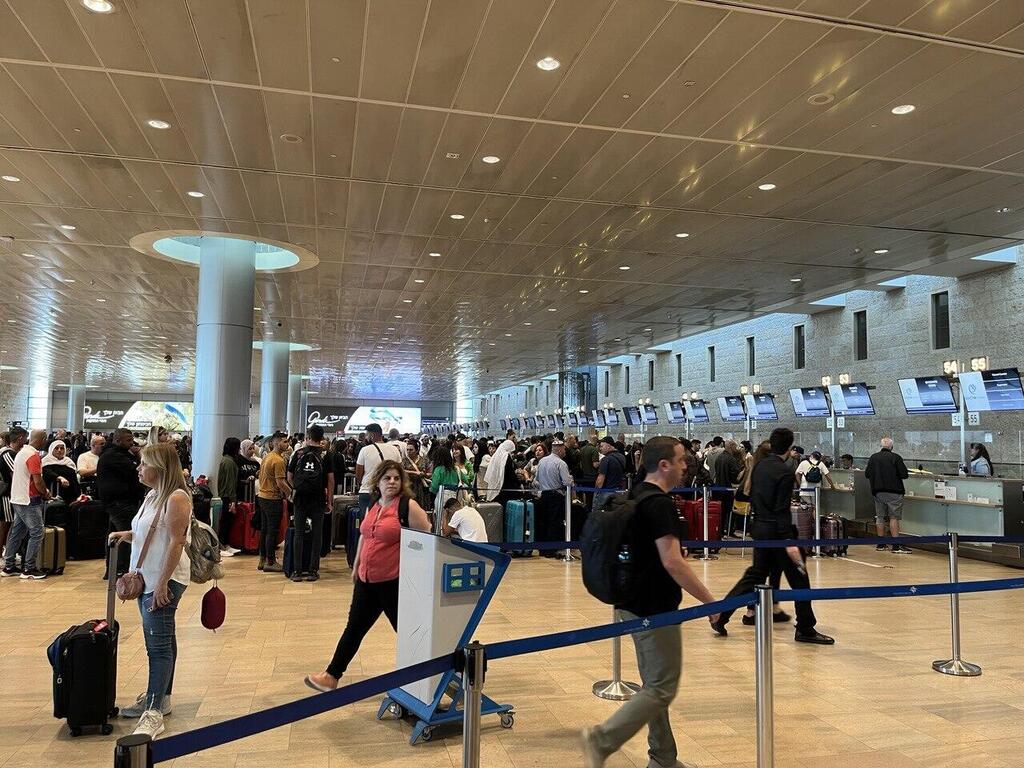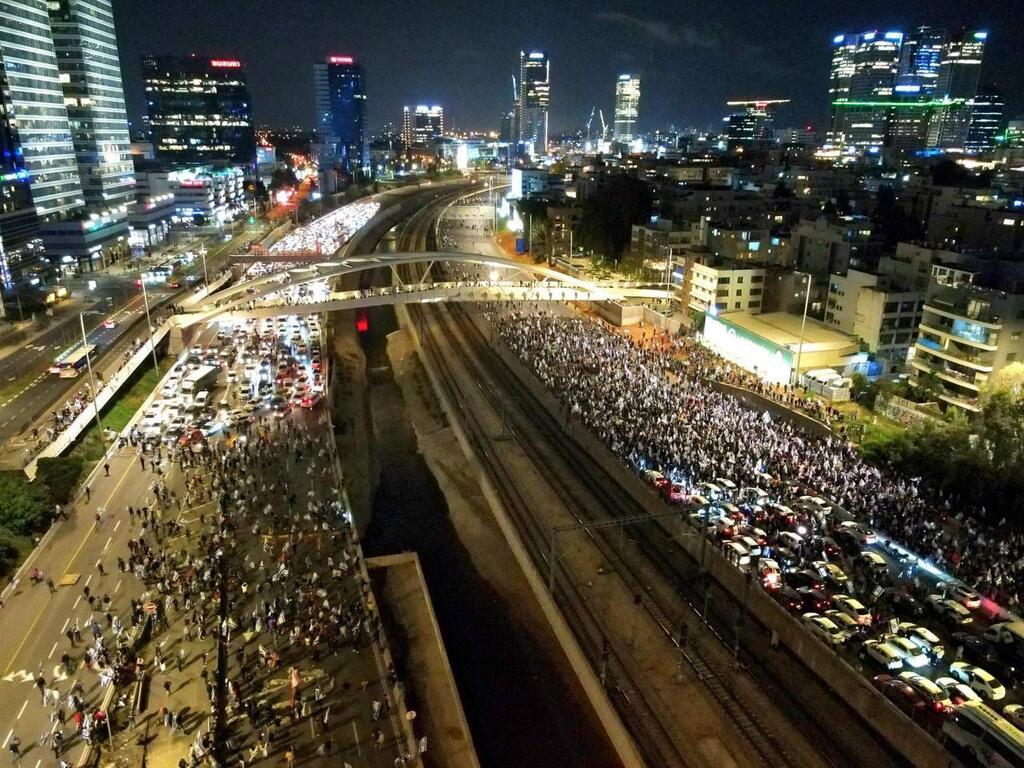Getting your Trinity Audio player ready...
Yossi Fatael, head of the Incoming Tour Operators Association in Israel, sent a letter to members over the weekend in which he revealed that tourists from abroad are canceling their trips to Israel due to the mass wave of anti-judicial overhaul protests that have swept the country in the past two months.
"We started receiving cancellation notices from abroad," wrote Fatael, who refused to specify the extent of the cancellations. "The ceaseless images broadcast from Israel are seeping into the world's consciousness."
Meanwhile, new data released Sunday by the Israel Hotel Association shows that tourist overnight stays in February totaled approximately 727,000, a 17% decrease compared to February 2019 – the last full year before the outbreak of the COVID-19 pandemic and a record year for Israeli tourism at large. Tourist overnight in January stays totaled approximately 589,000, a 26% decrease compared to January 2019.
The overnight stays of Israelis in February amounted to approximately 902,000, a 15% increase compared to February 2019. The total number of overnight stays last month amounted to approximately 1.6 million - a 2% decrease compared to the same period in 2019.
"Thanks to the overnight stays of the Israelis who believe in the local hospitality industry, the gap compared to overnight stays in February 2019 is only 2%," the Hotel Association said.
"We hope that from March onwards, we will see a recovery in incoming tourism as well against the background of the favorable weather and the Tourism Ministry's campaign worldwide."
"We have been receiving worried calls"
In his letter, Fatael said that "things got to the point that in the last few days, the members of the Association started receiving worried calls from their peers abroad.
"What is happening in Israel is beginning to seep out - the demonstrations, the internal rift, the worry in the world and the fact that ministers in the government have also begun to confront countries abroad. Although the phenomenon is not widespread yet, naturally it could expand as it did in previous times."
In a conversation with Ynet, Fatael added: "In recent days, we have been receiving worried calls from our colleagues around the world, a phenomenon we have not known for several years, not even during the times when there were tensions in the south and tunnels in the north.
"These images, coupled with security events, and the lack of political stability, make organizers abroad consider whether to carry out deals that are planned for the near and more distant future. The reality as it is reflected in the world press is not similar to the reality as we experience it.
If we don't manage to get out of the headlines soon, the phenomenon of cancellations that is currently on the fringes will spread and the upcoming winter season, which was supposed to be excellent, will be compromised. Organized tourism mainly revolves around the periphery, so it will take the hit first, unfortunately. We have not yet returned to the scope of 2019 and now we may retreat again."
Israelis are also reluctant to travel
Signs of a decline started two show weeks ago with the number of tourists visiting Jerusalem reportedly dropping off by over 30% in the past two months.
The data was collected from various tourist locations such as museums, attractions, leisure businesses, and from travel guides.
Last week, Ynet reported that Israelis were reluctant to book vacations due to the ongoing unrest throughout the country.
"There is uncertainty in Israel and it impacts the tourism industry," said Ziv Rosen, CEO of Gulliver Tours. "The increase in dollar exchange rates is contributing to the rise in vacation prices. In the tourism industry, it was initially anticipated that 2023 would surpass 2019, which was the last full year of tourism. However, it is now projected that this will only occur later in the year."



